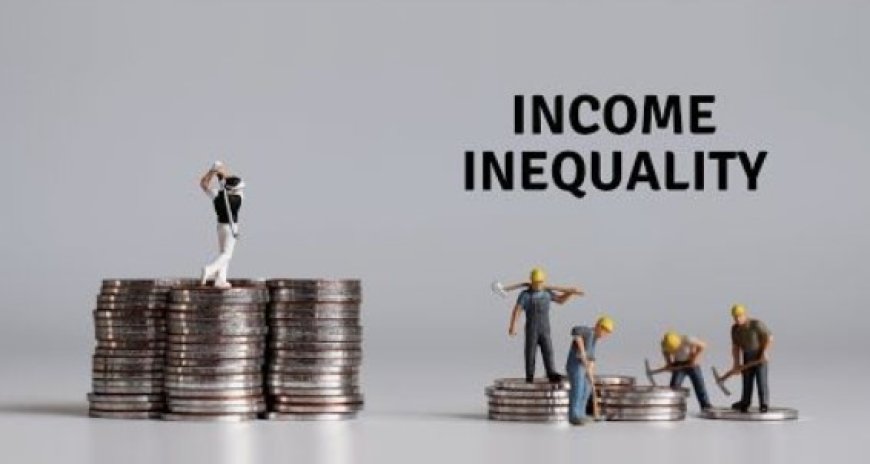Income Inequality: The Socioeconomic Divide and Its Economic Impacts
Impacts of Income Inequality: Economic, Social, and Health Consequences and Calls for Equity and Fairness.

Income prejudice has meaningful effects on the saving, organization, and overall well-being. Here are few key impacts of pay prejudice:
1. Reduced economic development: High levels of revenue inequality can preclude financial tumor. When a significant portion of the public has restricted ability to purchase, it can lead to diminished services spending and lower aggregate demand, that can hinder financial activity.
2. Social inconstancy and prejudice: Income inequality can bring about friendly disturbance and increased strains 'tween different socioeconomic groups. It can deteriorate friendly union and create separations inside society, moving friendly unity and stability.
3. Unequal approach to moment: Income prejudice often interprets into uneven access to instruction, healthcare, and added essential aids. This lack of equal opportunities can bolster a phase of poverty and limit climbing in status, further infuriating profit disparities.
4. Health and comfort differences: Income inequality is approximately connected to well-being outcomes. Lower-pay things and families concede possibility face challenges in achieve value healthcare, leading to weaker fitness consequences and reduced longevity.

5. Political influence and capacity imbalance: High levels of profit prejudice can collect political influence in the hands of a rich few, conceivably leading to tactics that favor their interests. This can weaken representative processes and create a capacity shortcoming in decision-making.
6. Increased misdemeanor rates: Income prejudice has existed associated with greater case rates. Limited business-related opportunities, disappointment, and rashness among those at the lower end of the gains range can help higher rates of characteristic cases and social disturbance.
Addressing pay prejudice requires a versatile approach that contains policies advancing impartial classification of wealth, lending in instruction and skill happening, guaranteeing approach to healthcare and social services, and achieving liberal tariff. By reducing profit differences, societies can promote better business-related stability, public union, and shared affluence.










































































































































































































